Building a greener world
Sustainable manufacturing is what we do
Green manufacturing
We are firmly committed to sustainable and innovative projects. Sustainable manufacturing starts at home. That is why we have invested in low-consumption machinery, implementing ISO 14001. We use 100% renewable electricity and have combined solar panels with green roofing on our main factory building. We have partnered in and co‑financed prize‑winning sustainable projects. We also specialize in biomaterials and use a high proportion of recycled materials during manufacturing
Natural insulation
We have installed green roofs in our factory in Castalla (close to Alicante in Spain). These roofs are natural thermal and acoustic insulators. They form new green spaces, reducing the visual impact of buildings and promoting biodiversity.
Solar energy
Another of the measures put in place in our Castalla plant has been the installation of solar panels. This action will reduce external energy consumption, bringing up to 15% savings in electricity consumption.
We take advantage of the sun’s heat, which is almost always radiant sunshine in the Mediterranean region. Therefore, we use its power of 200 kW to run our machines and to illuminate our offices.
Electric machines
Our repetitive manufacturing process uses fast and reliable machinery that allows us to work with rapid cycles for demanding sectors, while providing significant savings in electrical energy.
LED lights
We have installed LED lighting – provided by one of our customers, Hispaled – throughout the factory. This improvement has reduced our lighting electricity consumption by 60 per cent.
Eco-friendly materials
We promote the use of new eco-plastics due to our extensive experience working with them. We know their creep, mechanical resistance, technical characteristics, costs, availability and supply sources, and so are fully equipped to take on any project involving eco-plastics.
Biodegradable
Plastics that can be broken down by living organisms, generally microbes found in in water, carbon dioxide and biomass. They are manufactured using renewable raw materials, micro‑organisms, petrochemicals, or a combination of the three.
Water-soluble
Materials that dissolve in water. They do not pollute the oceans nor harm marine flora and fauna.
Bioplastics
Non-fossil polymer materials that are compostable and can be broken down quickly. They are manufactured from renewable resources such as sugars, cereals, potatoes and starch.
Recycled plastics
Plastics that have been recovered through a recycling process, transforming them into useful production materials. 35 per cent of the plastics we use in our factory are recycled.
Sustainable projects
We develop and support projects aiming at improving the environment through our impact investment: this means helping with design and industrialization and in some cases, even sponsorship.
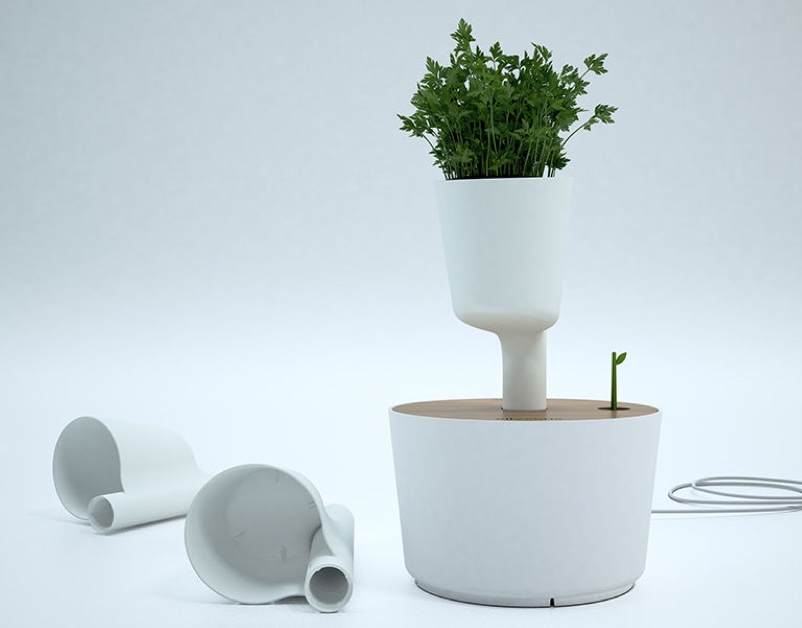
Citysens
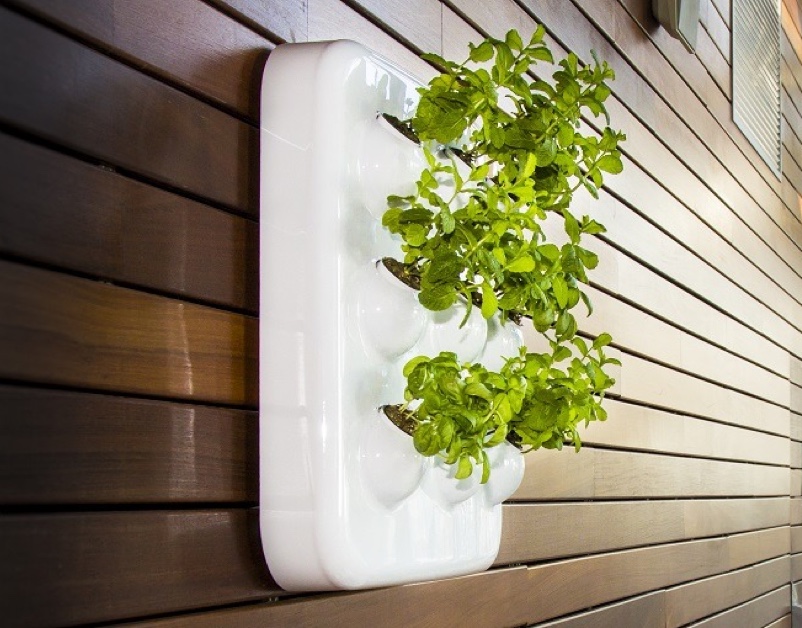
Optimus
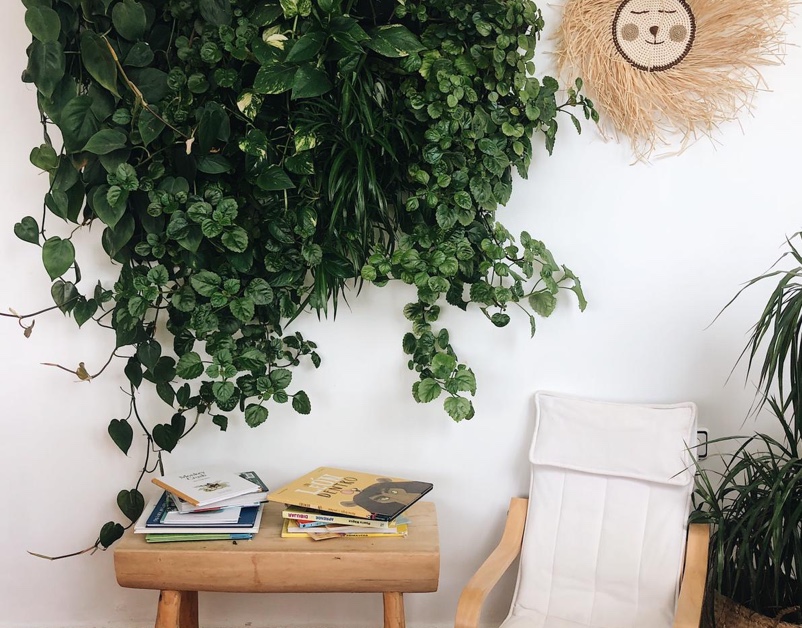
Spore
Ecological projects
Discover some of our most prized eco-friendly projects:
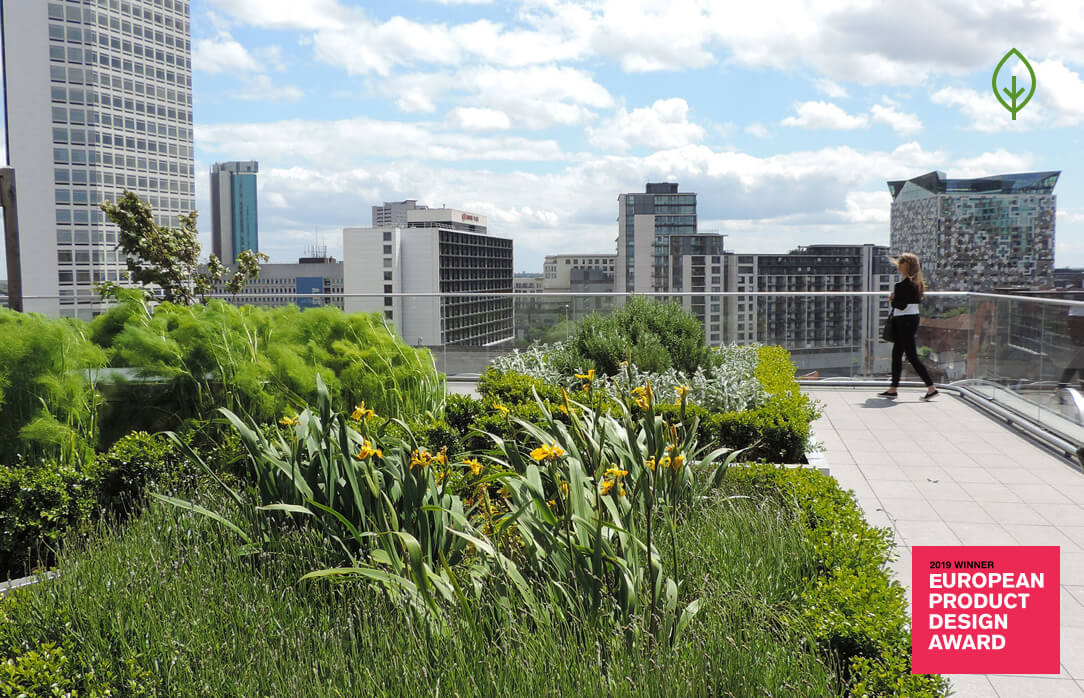
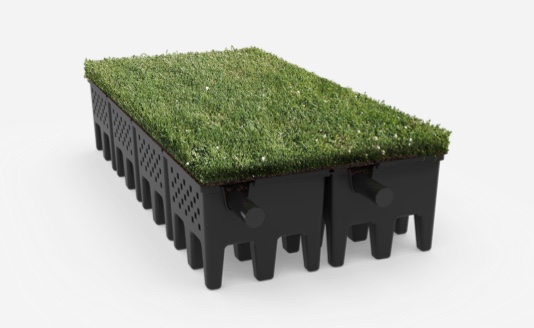

Cubiertas Verdes
- Polipropireno de alto impacto reciclado
- Cofinanciación del desarrollo del proyecto
- European Product Design Award 2019
El sistema patentado y premiado de Espora es una opción sostenible, segura, modular de fácil instalación para cubiertas verdes, planas o inclinadas. Entre muchos de sus beneficios destaca el aislamiento térmico y acústico de los edificios.
Nuestra participación en el proyecto va desde la ingeniería del producto, pasando por la fabricación de los módulos de polipropileno, hasta la confinanciación del desarrollo e industrialización.
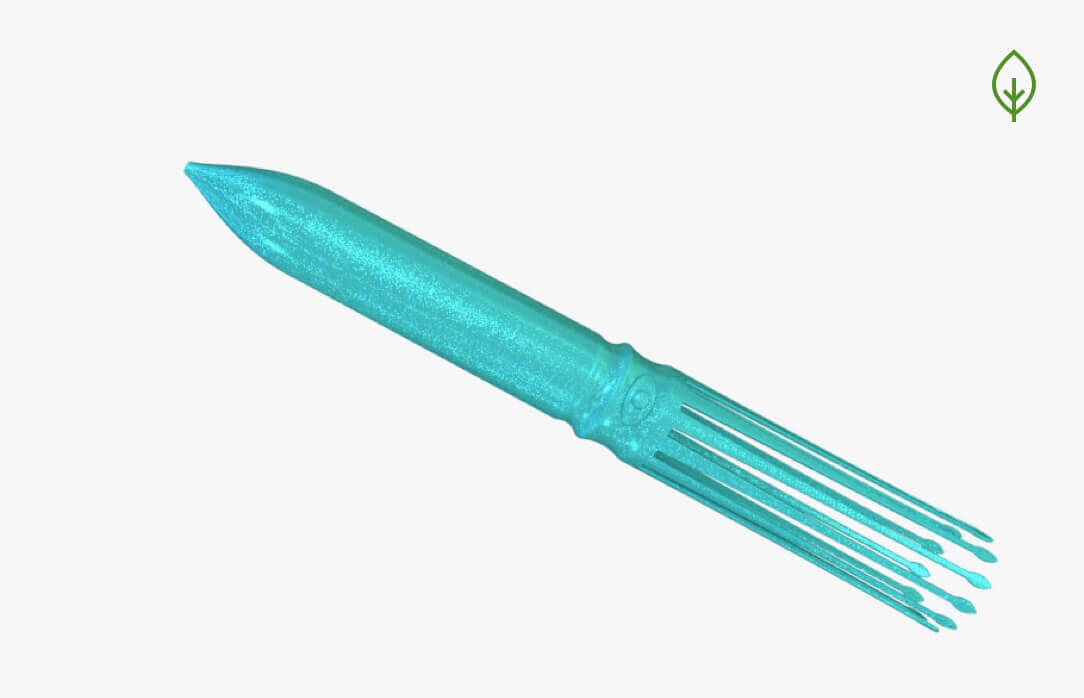

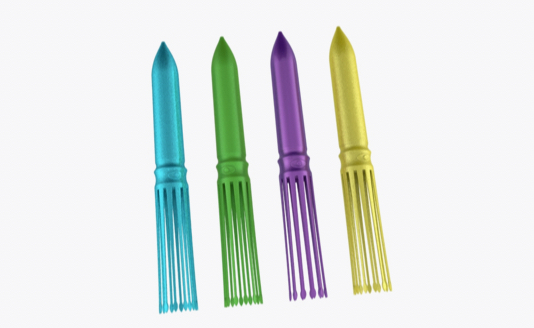
Anzuelo hidrosoluble
- Polivinilalcohol PVOH
- Solución ecológica, eliminación de residuos
- Peso optimizado y mayor productividad
Los cebos usados para pesca de altura son habitualmente de plástico. Surgió la idea junto a nuestro cliente de desarrollar soluciones de cebos hidrosolubles para asegurar su descomposición en el mar. Fue todo un reto ajustar los diseños a los nuevos materiales.

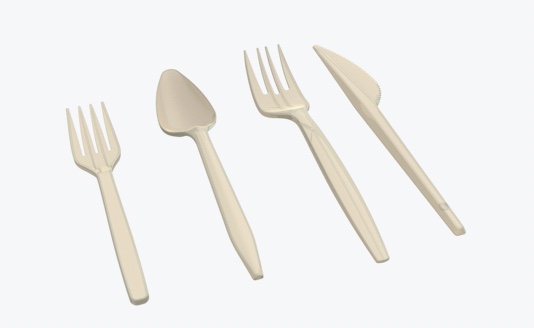

Cubiertos en PLA
- PLA
- Relación óptima peso-resistencia
- Ciclo 6.2 s con extracción manopresa para apilado
Desarrollamos para un cliente nuestro habitual de moldes de cubiertos desechables un diseño que se adecuara a los bioplásticos disponibles.
El desafío exigió realizar moldes prototipo y testar las variantes de diseño y compuestos disponibles hasta dar con un resultado óptimo. También trabajamos en actualizar la gama de cubiertos en material de origen orgánico (maíz).